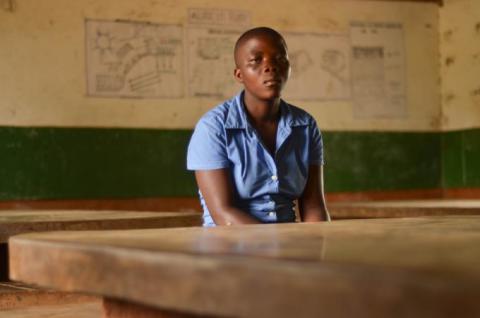World Day Against Child Labour 2015: No to Child Labour, Yes to Quality Education
The theme of this year’s commemoration of the World Day against Child Labour is “No to child labour, yes to quality education” This theme highlights the importance of basic education in the elimination of child labour.
In an agro based society such as Malawi where children start farming at a tender age, children are even more at risk of going into child labour and get exposed to hazardous work conditions. When children of school going age are not in school, where are they?

The probability of that child working and indeed being exposed to hazardous work becomes high. How does it feel for a working child to see his ex-classmates coming home from school? Most likely despair, sadness, hopelessness and shame. These are some of the words children used to describe that feeling. Here’s a case of one of the children that depicts the desperate situation most children find themselves in.
Kalonga was doing well at school, but had to drop out when his father left the family and his mother became ill. As the eldest child, he became a breadwinner for her and for his two younger siblings. At age 14 he found a job as a porter at the tobacco farm where he was herding cattle, working from 6 am to 6pm. At first, Kalonga tried to catch up with school, but he often overslept and missed classes, or he fell asleep in the classroom.
Kalonga‘s mother did not see any harm in her son’s work. On the contrary, she believed that the sooner he learned how to earn money, the better. Such perceptions are unfortunately quite common in Malawi, especially among poor families who cannot even afford the costs of secondary education. What these parents do not realize, is that they reproduce a vicious circle of poverty: lacking proper education, their children, when they grow up, will most likely join the rows of marginalized, unemployed or low-paid workers.
“What these parents do not realize is that they reproduce a vicious circle of poverty."
According to the Ministry of Education and Science, there are around 500,000 children in Malawi that are not attending school. This includes children who have to work and are sometimes involved in hazardous forms of child labour. Since 2011, with the support of the Elimination of Child Labour in Tobacco Growing Foundation (ECLT), Save the Children International and its partners, YONECO, CRECCOM and Total Land Care have been combating child labour by implementing an integrated project christened as Child Labour Elimination Actions for a Real Change (CLEAR). Implemented in three districts of Mchinji, Ntchisi and Rumphi, the project has protected over 10, 000 children from child labour by among other things improving access of children to quality basic education and improving the livelihoods of vulnerable households—suppliers of child labourers. This approach addresses both in-school factors as well as out-of school/ household factors that make children drop out of school and put them at risk for going into child labour.
The project had a strong emphasis on education. The project emphasized both formal education as well as non-formal education such as literacy boost that enable accelerated learning of children who have been reintegrated into formal education system.
On this year’s World Day against Child Labour we call for:
- Free, compulsory and quality education for all children at least at the minimum age for admission into employment and action to reach those presently in child labour;
- New efforts to ensure that national policies on child labour and education are consistent and effective;
- Development and implementation of policies that ensure access to quality education and investment in the teaching profession.
Written by Archangel Bakolo-CLEAR National Project Manager
 Malawi
Malawi